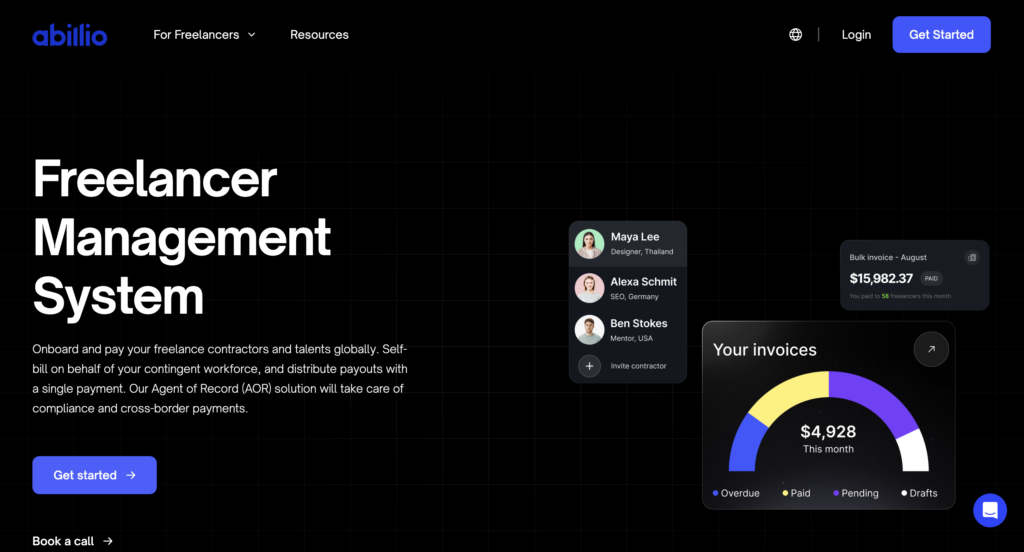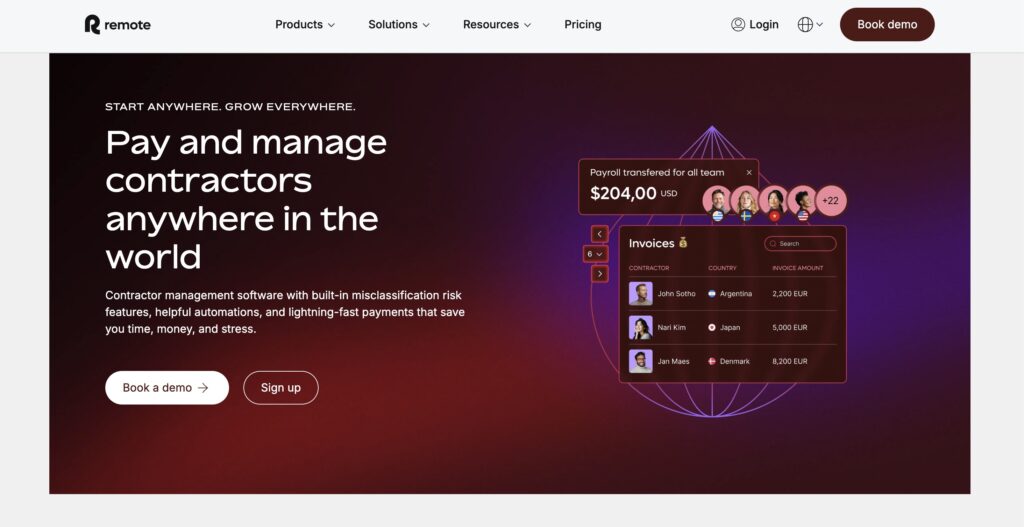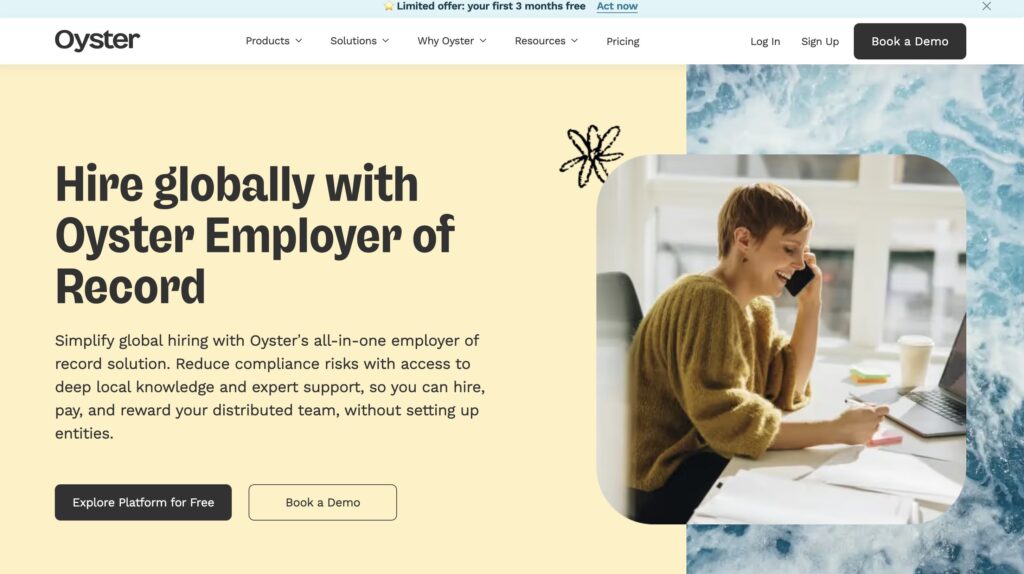When your company is growing and you need to pay and manage freelancers from all over the world, you need a reliable tool. Deel can be a great option – it covers a ton of countries and wraps global hiring into one polished platform. But if you’re looking for Deel alternatives, it’s worth knowing that Deel can also be very costly, sometimes overkill when your workforce is mostly contractors, and a few essential needs (like lighter contractor ops or certain compliance workflows) can feel clunky or buried behind add-ons.
If you’re looking for an all-in-one platform that’s not only a freelancer management system, but also gives you VAT-correct invoicing, copyright transfer acts, and super-fast payouts globally without locking you into per-seat subscriptions, it might be time to explore other tools.
Here’s the list of Deel alternatives that made into this review:
| # | Tool | Starting Price | Best For | Sweet Spot |
|---|---|---|---|---|
| 1 | Abillio | 4-5% per payout, no subscription | Contractors / freelancers | VAT-correct invoices + fast global payouts |
| 2 | Ruul | % fee per invoice (tiered) | Freelancers | MoR-style invoicing without a company |
| 3 | Remote | ~$599/employee/mo EOR | Full-time hires | Owned-entity EOR, clean UX |
| 4 | Remofirst | ~$199/employee/mo EOR | Budget EOR | Low-cost global expansion |
| 5 | Oyster HR | ~$29/contractor/mo | Remote-first Companies | EOR + benefits-heavy global people ops with strong compliance |
1. Abillio (Best Deel alternative for global contractors)

If your core need is paying international freelancers or contractors, Abillio is the best first option.
Instead of charging you per contractor per month, Abillio is purely pay-as-you-go: a 5% service fee per payout (for freelancers) and 4% for Pro users, with no subscription or seat pricing. That’s huge if your contractor headcount changes month to month.
Why Abillio wins vs Deel for contractor-heavy teams
- Contractors don’t need entities: they invoice through Abillio’s legal setup, reducing onboarding friction and invoice errors.
- Predictable scaling economics: no per-contractor monthly fees. You pay only when you pay contractors. That’s a big deal for seasonal workforces or marketplaces.
- VAT-ready invoices and cross-border compliance (especially relevant in Europe).
- DAC7 reporting support for EU platforms and marketplaces.
- Multiple payout routes (bank, card, PayPal, crypto etc.) with quick turnaround.
- You don’t pay for idle seats. Deel’s per-contractor subscriptions add up fast at scale.
- Copyright transfer acts built in: makes IP ownership clean for creative, dev, and product work.
Best for
- Companies where most of the global workforce are contractors
- Marketplaces paying lots of international sellers/creators
- EU-based businesses that need VAT-correct invoicing and DAC7-ready flows
- US-based companies that need 1099 reporting
When Deel or an EOR might be better
If you’re hiring full-time employees via EOR across multiple countries, Deel (or Remote below) may fit better. Abillio is contractor-first.
2. Ruul (Good for SMB contractor management with MoR invoicing)

Ruul (formerly Rimuut) is a Merchant of Record (MoR) platform designed to simplify global compliant invoicing for the freelance economy.
By acting as the MoR, Ruul allows individual contractors, creators, and indie sellers to generate compliant invoices globally without needing to set up their own company, significantly lowering operational friction.
While Ruul offers a strong solution, its feature set is best suited for the individual user rather than businesses managing high-volume, global contractor operations.
Where Ruul shines
- Enables contractors to invoice globally and compliantly without a registered business (a concept similar to Abillio)
- Strong freelancer UX and global invoicing reach
- Provides cleaner invoices, resulting in fewer errors and less time spent by finance teams on corrections.
Shortcomings
- Less cost efficient at volume: tiered fees make forecasting harder when your contractor spend grows.
- More freelancer-centric feature depth: solid UX, but fewer marketplace/bulk payout controls (compared to Abillio).
- Not built as a full contractor ops backbone: better as a billing + payout layer.
3. Remote (Best Deel alternative if you need EOR for full-time hires)

Remote is one of closest “full-suite” Deel alternatives. From a B2B perspective, Remote is best when your contractor program is large and you’re either already hiring, or planning to hire, full-time employees internationally through EOR. Remote runs a more compliance-heavy model and emphasizes owned entities in many countries (less reliance on third-party partners), which reduces risk in sensitive markets.
Best for:
- EOR-forward teams: great if you plan to convert contractors into full-time hires abroad.
- Mid-market with low risk tolerance: strong, standardized compliance across countries.
- HR/finance-led orgs: mature onboarding, approvals, benefits, and audit trails vs budget EORs.
Shortcomings
- Deel-level pricing: about $599-$699 per EOR employee/month and ~$29-$99 per contractor/month, so costs climb quickly if you manage lots of contractors.
- More platform than you need if you’re contractor-dominant: if 80-100% of your global workforce are contractors, you may be paying for a global HR stack you won’t use.
4. Remofirst (Best budget EOR, decent for light contractor ops)

Remofirst is basically one of the main “good enough EOR for way less money” Deel alternatives. It targets startups and scaling businesses that need legal global hiring coverage but can’t justify Deel/Remote pricing. Its published pricing is about $199 per employee/month for EOR, and contractor management around $19-$25 per contractor/month depending on plan/source.
Remofirst Pros
- Budget-friendly EOR reach: a solid pick for startups/SMBs hiring a small number of employees abroad (say 1-20) when premium EOR pricing is a dealbreaker.
- Great for testing new markets: lets you hire 1 person in a new country without committing to $600+ per head each month.
- Works for mixed teams: if contractors are a smaller slice of your workforce and you only need straightforward invoicing and payouts, Remofirst’s contractor tier can cover the basics.
Shortcomings
- Not as compliance-deep as premium EORs: it’s solid, but doesn’t have the same owned-entity footprint or policy maturity as Remote/Deel, which can matter in complex countries.
- Contractor tooling is “basic”: fine for small counts, but not built for high-volume contractor ops, EU DAC7 intensity, or IP-heavy flows the way Abillio is.
- Support and process can vary by region: common tradeoff in budget EOR models that rely more on partners in some markets.
5. Oyster HR (Best EOR for Employee Success & Benefits)

Oyster is a global employment platform that combines Employer of Record (EOR), contractor management, global payroll, and benefits in one place. It supports hiring and paying talent in 180+ countries, with EOR coverage in 130+ countries depending on role type. From a business perspective, Oyster is for companies that want a policy-driven global HR layer on top of international hiring, not just a way to pay contractors.
Key Advantages
- HR-led global scaling: built for companies growing full-time teams abroad, with EOR, benefits, and compliance as the core.
- Localized benefits focus: strong country-by-country benefits support for hiring and retaining senior talent.
- Standardized global people ops: streamlined onboarding, contract templates, docs, and guided local compliance.
- Contractor-to-employee paths: easy to convert top contractors into EOR employees in the same system.
Shortcomings
- Costly for contractor-heavy teams: $29 per contractor/month adds up quickly versus usage-based models (especially if you have lower-pay freelancers)
- Too HR-heavy for pure contractor operations: much of the HR and benefits tooling goes unused if you only need compliant invoices and payouts.
- Not built for marketplaces: lacks the bulk payout efficiency needed for platforms paying large volumes of freelancers.
- Inconsistent country depth: some markets run smoother than others due to varying local partner coverage.
Bottom line
Deel is a strong global HR platform, but for businesses primarily managing international contractors it often costs more than you need and adds HR weight you won’t use.
For contractor-heavy B2B teams, Abillio is the best Deel alternative by a lot: usage-based pricing, VAT-correct invoices, DAC7-ready EU compliance, built-in copyright transfer acts, and fast global payouts that scale without subscription bloat.


